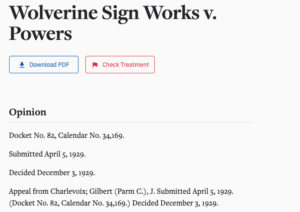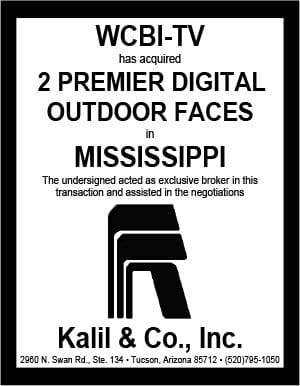 It’s standard to include non-compete language in an asset purchase. A non-compete needs to be limited as to geography and time or it might be thrown out. That’s the lesson of Wolverine Sign Works v Powers. Here are the facts.
It’s standard to include non-compete language in an asset purchase. A non-compete needs to be limited as to geography and time or it might be thrown out. That’s the lesson of Wolverine Sign Works v Powers. Here are the facts.
- In 1926 Leo Powers sold 20 billboard faces in 6 Michigan counties. to a company which was the predecessor to Wolverine Sign Works.
- The sales agreement included the following non-compete language: “I further agree never to engage in outdoor advertising business north of Cadillac Michigan.
- One year later Wolverine sued Powers after he re-engaged in the outdoor advertising business in territory north of Michigan.
- Powers argued that the non-compete should be voided because it created an unlawful monopoly and restraint on trade.
- The Michigan Supreme Court upheld the non-compete by a 3-2 decision, holding that the agreement created no monopoly. A dissenting opinion to the decision signed by two judges, however, shows when courts may object to a non-compete. The dissenting judges wrote: “It appears that the restraint as to territory goes far beyond any of the counties in which the defendant had been carrying on the business which he sold. He was doing business in six counties and the plaintiff having purchased that business seeks to restrain him from doing a like business in 36 counties including the upper peninsula……The restraint as to time is also unreasonable…Never is a long time. It is longer time than is necessary to enable the purchaser of a business to convert the good will into a good will personal to himself.
Billboard Insider’s take: It’s natural to want a non-compete when you acquire assets or when you hire a key employee. A non-compete needs to be tailored as tightly as possible with respect to geography and time or it might be subject to court challenge. You also might consider tying a series of future payments to compliance with the non-compete so that there is an increased incentive to comply with the terms.
[wpforms id=”9787″]
Paid Advertisement


















In California, a non-compete is enforceable only in connection with the sale of an interest in a business, and must be limited geographically and temporally. There’s more to it than that, but those are the basics.